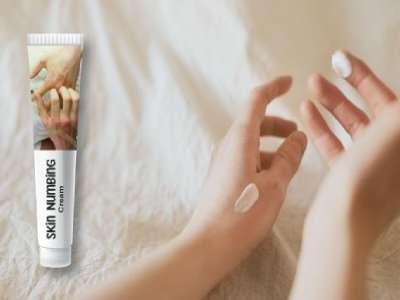Numbing Cream for Piercing

For those looking to numb their skin, today, we'll take a look at what options are out there. There's no one-size-fits-all numbing cream or spray because every person has different needs and preferences for pain relief procedures like tattoo removal.
However, many people turn towards topical creams that can be applied topically before getting work done, so they don't feel discomfort afterward. Let's see what numbing creams are? And are mainly in demand, with some benefits and warnings.
What are numbing creams?
You may not realize it, but there are a few things in your beauty arsenal that could be doing more than just making you look and feel good.
For instance, skin-numbing creams work by blocking sodium channels so the nerves sending pain signals from our skin can't get through to us
No matter how much we're itching or burning at any time, these types of medication often come with instructions about when they should or shouldn't be used.
Like before minor surgery like tattoos, during cosmetic appointments where parts of your body will be exposed to discomfort such as waxing/ sugaring; after an injury has occurred due.
Why do people numb their skin?
There are two main reasons because of which you may want to numb your skin temporarily:
- To relieve current pain
- In anticipation of future pain
The primary causes of pain from which you may want to numb your skin include temporarily:
Sunburn, because your skin is burned from overexposure to heat.
Skin injury, your skins injured, but there's no blood appeared.
Dermatitis, your skin may come in contact with some substance that caused you some allergic reactions.
Tattoo, while doing larger tattoos, you may feel pain for more time, so numbing is compulsory for such an act.
Piercing, yeah, it's painful, and for that, numbing your skin is necessary.
Skin is a susceptible part of the human body, and you may unintentionally damage your skin by such activities. Still, if you are looking for creams that may relieve you from pain, there are many skin-numbing creams available that you should use for such acts.
Numbing cream used for piercing
Products like Emla are generally effective for reducing pain and discomfort. It is available in a tube of patches or cream; it is applied by peeling off its back to numb an area you wish to alleviate from soreness.
The product works best when applied within 72 hours after the injury has occurred because if it sits longer than that, there can be adverse effects such as scarring. If possible, try not to use it on open wounds unless otherwise directed by your doctor.
If you are fed up with using natural numbing options for skin like ice, patting your skin, aloe vera gel, and olive oil, you must go for medications that US Food and drug administration approval.
There's always this option for those who have to go through a painful procedure at the doctor's office. Doctors typically use anesthetics approved by USFA and available over-the-counter as well in their own homes.
- lidocaine (Dermoplast, LidoRx, Lidoderm)
- benzocaine (Solar Caine, Dermoplast, Lana cane)
- pramoxine (Sarna Sensitive, Proctofoam, Prax)
- dibucaine (Nupercainal, Rectacaine)
- tetracaine (Ametop Gel, Pontocaine, Viractin)
Side effects of numbing cream
With some benefits, there are always some side effects you may aren't aware of! Several different side effects may be caused by using skin-numbing cream, depending on the type you are using.
There are some signs of an allergic reaction like:
Examples of side effects that may indicate an allergic reaction/medical emergency include:
- Dizziness
- Itching or rash on the skin
- Drowsiness
- Swelling of the lips, face, or throat
- Breathing problems
- Chest pain
- Blurred vision
- Rapid (or irregular) heart rate
The important note is that the above side effects shown may require immediate medical intervention. If you find these side effects in your body or with someone, you know of, immediately go to a hospital emergency room or call 911.
Warnings
There are many ways people can get their health to worsen from overdosing on numbing medicine. One of the most common side effects is an irregular heartbeat that may lead to seizure or coma, slowed breathing, and even respiratory failure.
The first thing to do when using any numbing cream or meds is not overdone it. Use just enough medicine for the skin that needs treatment, and avoid covering large areas of yourself with bandages or plastic wrap without medical advice, as this can lead to issues down the road.
Use the smallest amount of this cream to numb the skin and not cover the treated skin areas with bandages or plastic. Cosmetic procedures can be risky without the presence of a physician.
Before using any medicine like Emla, tell your doctor about your history of allergic reactions to prilocaine or lidocaine, or any liver disease you're suffering through.
Avoid accidentally injuring treated skin areas while they are numb. Be very careful not to contact hot or cold surfaces since this can cause pain for you and the patient.
Takeaway
Tattoo and piercing is an art that most people follow, so it has become a fashion, let’s say. But with that, while doing such an act, you must be ready to absorb the pain.
For such instance, numbing creams are available in the market that you weren’t aware of!
So, in this blog, we have provided information about skin numbing and why it’s done, and some medicines you could use for your skin.
- Comment
- Posted by Sam Billings